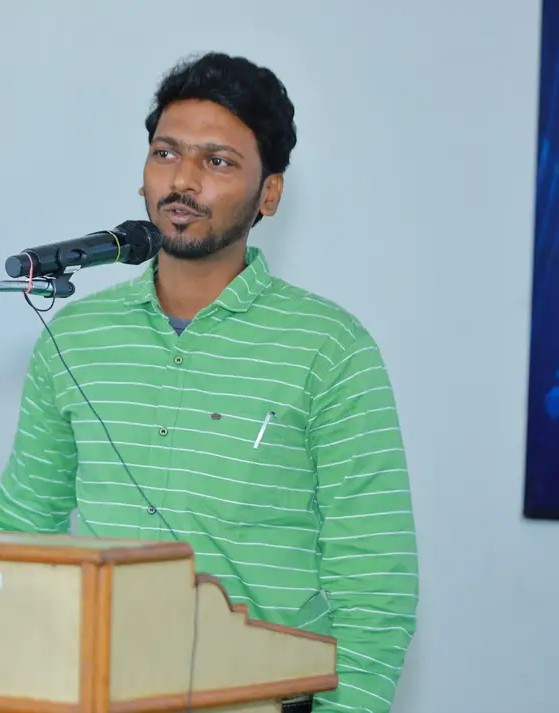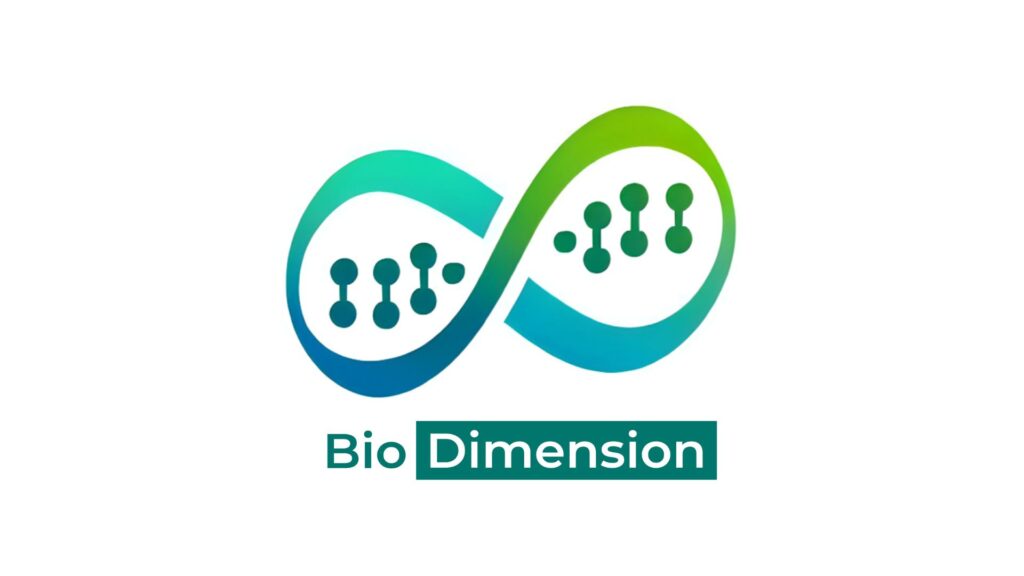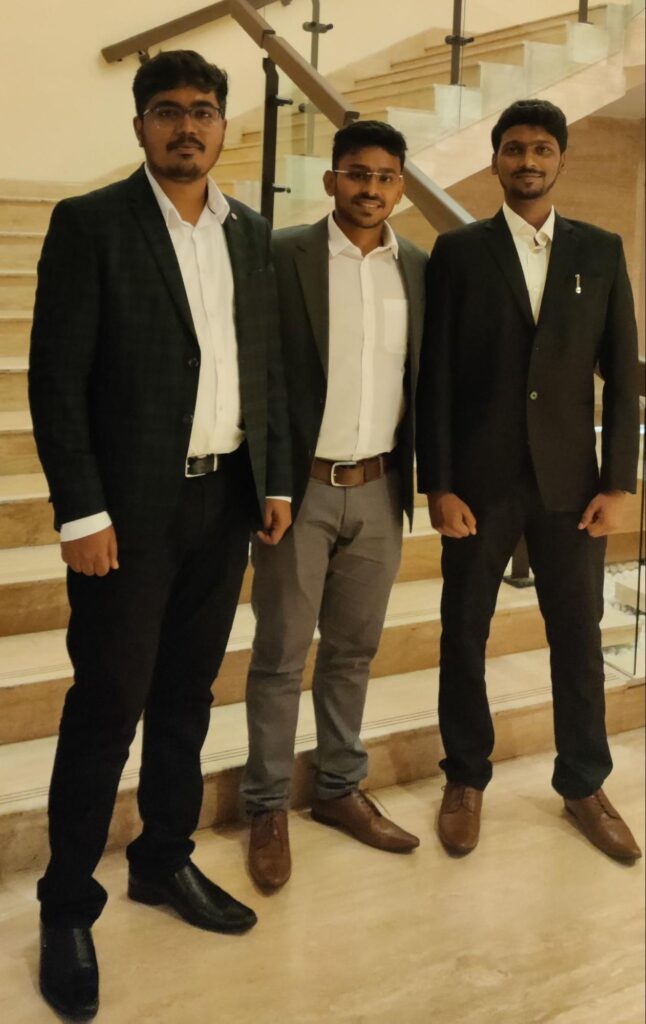Interview With Pradeep Arunachalam, Co-founder And Director Of Biodimension Tech Pvt Ltd
Welcome to the latest edition of Founder Spotlight, featuring Pradeep Arunachalam, the co-founder and director of Biodimension Technology Private Limited, a biotechnology company specializing in tissue engineering. The company aims to revolutionize healthcare by providing more human-relevant and ethical testing alternatives to traditional animal models. Pradeep and co-founders Manoj Kumar Sampath (CEO) and Ranjith Kumar Velusamy (Chief Innovation Officer) have played a pivotal role in positioning Biodimension as a leader in fabrication technology.
As a biotechnologist and entrepreneur, Pradeep is committed to sustainability and impactful innovations, aligning with Biodimension’s mission to improve drug discovery processes and promote ethical testing practices.
Could you tell us about your journey and what inspired you to start Biodimension Technology?

The journey of Biodimension Technology began with a shared vision to create a meaningful impact in healthcare and life sciences. During my academic and professional pursuits in biotechnology, I became deeply aware of the limitations and ethical concerns surrounding animal testing in drug discovery and cosmetic science. This realization, combined with the potential of tissue engineering to address these gaps, inspired me and my co-founders to explore biofabrication technologies. Our shared belief in ethical, innovative, and science-driven solutions drove us to establish Biodimension Technology as a platform to offer sustainable alternatives that not only advance science but also respect life.
What motivated you to launch a startup that specializes in ‘offering biofabricated human tissues and organoids for non-animal drug screening, safety, and toxicology testing’?
The motivation was twofold: solving a pressing industry problem and making a positive societal impact. The reliance on animal testing has long been a bottleneck due to its ethical implications, lack of accuracy in predicting human responses, and inefficiency in drug development timelines. We saw an opportunity to fill this gap by leveraging biofabricated tissues and organoids that replicate human biology with remarkable precision. Our goal was not just to build a business but to contribute to a paradigm shift in how the industry approaches drug discovery and safety testing, making it more humane and effective.
How has your academics in Biotechnology, Pharmaceutical Marketing and Management, or professional background shaped the company’s vision—‘to revolutionize healthcare by becoming a leading organ manufacturer through advanced tissue engineering techniques’?
My academic foundation in biotechnology equipped me with the technical expertise to understand the science behind tissue engineering and its vast potential. Further studies in pharmaceutical marketing and management honed my ability to translate innovative concepts into viable business strategies. Professional experiences taught me the importance of collaboration, problem-solving, and resilience—skills that have been instrumental in shaping Biodimension’s vision. This combination of scientific knowledge and entrepreneurial mindset allowed us to align our goals with the pressing needs of the healthcare industry, steering us toward revolutionizing organ manufacturing and tissue engineering.
Based on Biodimension’s mission—‘to enhance the drug discovery process and promote the safety and efficacy testing of cosmetics and chemicals’—what are the key problems it aims to solve in the biotech industry?
Biodimension aims to address three critical challenges in the biotech industry:
- Ethical Concerns: Eliminating the reliance on animal testing by offering scientifically superior human-relevant models.
- Inefficiency in Drug Development: Accelerating timelines and reducing costs through precise and reproducible biofabricated tissues.
- Regulatory Compliance: Assisting companies in meeting global standards for safety and efficacy testing with validated non-animal models.
By solving these problems, we aim to enhance the reliability of research outcomes and contribute to a more sustainable and ethical biotech ecosystem.

Biotechnology is a rapidly evolving field. What major trends do you see shaping the industry in the next few years?
Biotechnology is on the cusp of significant transformations. Major trends include:
- Personalized Medicine: Advances in genomics and organoid technologies are paving the way for tailored therapeutic solutions.
- Artificial Intelligence: AI is revolutionizing drug discovery by enabling data-driven predictions and reducing R&D cycles.
- Organ-on-Chip Models: Miniaturized systems that mimic human physiology will gain prominence in preclinical testing.
- Regenerative Medicine: Breakthroughs in tissue engineering and stem cell research will drive innovations in healthcare.
- Sustainability: A growing focus on green biotechnology to address global environmental challenges.
These trends represent exciting opportunities for startups like ours to innovate and contribute to the field’s evolution.
What were some of the key challenges you faced while building Biodimension, and how did you overcome them?
The journey was filled with challenges, from technical roadblocks in developing complex biofabricated tissues to navigating regulatory requirements and securing initial funding. One major hurdle was convincing stakeholders about the feasibility and value of non-animal models in industries traditionally reliant on animal testing. We overcame these challenges through perseverance, collaboration with industry experts, and a strong commitment to our mission. Building a talented and motivated team also played a pivotal role in transforming obstacles into stepping stones.
How has the biotech startup ecosystem in India supported your company’s growth?

India’s biotech ecosystem has been incredibly supportive. Initiatives like BIRAC (Biotechnology Industry Research Assistance Council) have provided funding opportunities, mentorship, and a platform to connect with stakeholders. Access to academic collaborations and startup accelerators has further fueled our growth. The ecosystem’s focus on fostering innovation and entrepreneurship has enabled us to scale our technology and explore global opportunities.
Congratulations on securing recent angel investment funding! Could you share how this funding came about and what it means for Biodimension Technology?
Thank you! The funding was the result of a clear vision, a robust business plan, and consistent efforts to build relationships with investors. We showcased our technology’s potential and its alignment with industry needs, which resonated with the investors. This funding is a significant milestone for Biodimension, enabling us to expand our manufacturing capabilities, enhance R&D, and accelerate our go-to-market strategy. It reinforces our belief in the transformative impact of our solutions and positions us for future growth.
How do you maintain strong relationships with your investors, and how involved are they in Biodimension’s operations or strategy?
Transparency and regular communication are key to maintaining strong investor relationships. We ensure they are updated on our progress, challenges, and milestones through detailed reports and periodic meetings. Many of our investors bring valuable expertise, and we actively involve them in strategic discussions, leveraging their insights to refine our approach. This collaborative relationship not only fosters trust but also strengthens the company’s long-term vision.
How did you prepare for the fundraising process, and what key learnings would you like to share?
Preparation involved extensive groundwork: developing a compelling pitch deck, understanding investor expectations, and clearly articulating our value proposition. Networking played a crucial role, as did resilience in the face of rejections. One key learning is the importance of aligning with investors who share your vision and bring more than just capital to the table—they should be partners in growth. Lastly, preparation and confidence in your mission are critical to navigating the fundraising journey successfully.
Lastly, what advice would you give to other founders looking to launch a biotech startup?
Start with a clear vision and a deep understanding of the problem you want to solve. Surround yourself with a talented and passionate team, as building a biotech startup requires both technical expertise and resilience. Focus on aligning your product with industry needs and regulatory standards early in the process. Lastly, embrace challenges as learning opportunities and stay committed to your mission—it’s the passion and perseverance that turn ideas into impactful innovations.
